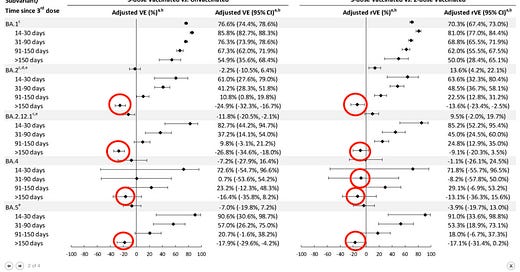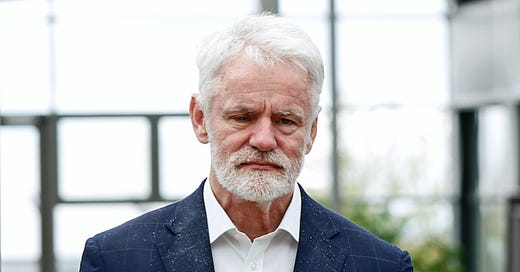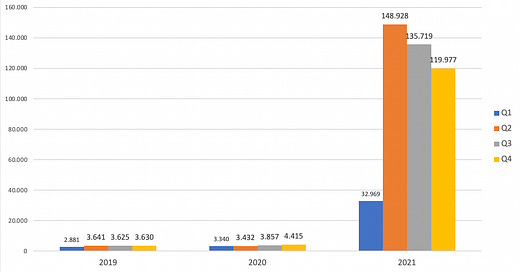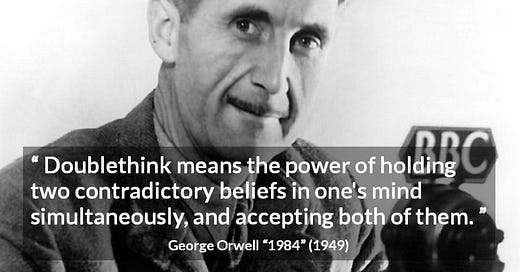

Discover more from From Symptoms to Causes
A Vaccine is a Vaccine is a Vaccine
‘Who controls the past controls the future: who controls the present controls the past.’
Already at the start of this year, official data were showing how those vaccinated against Covid-19 were more likely to become infected than those unvaccinated. I saw and wrote about this in Iceland in January and we saw similar numbers in Scotland, to name two examples. In Iceland, the problem was tackled by retrospectively changing the inconvenient data, in Scotland they stopped publishing the data.
There is a new study out now, still in preprint stage, conducted by one of the vaccine manufacturers, Moderna. The study shows how the vaccinated become more likely to become infected with the latest variants of Covid-19 than the unvaccinated as time passes. And the higher the number of shots, the more likely you are to get infected.
The red circles show negative effectiveness. They appear at the bottom of each variant category, showing how the vaccine provides some, though limited protection initially, which then not only disappears but becomes negative.
This is not the first study showing this. I recently wrote about an Icelandic study showing a 42% higher reinfection rate for the vaccinated than the unvaccinated. In their introduction the authors classified this as a “slightly higher” rate.
Perhaps it is time to look up the definition of “slightly” and see if it has been changed recently. Wouldn’t be the first time that happened:
Until about 15 months ago, the CDCs definition of vaccination was "[t]he act of introducing a vaccine into the body to produce immunity to a specific disease."
After it was established how the Covid-19 vaccines do not satisfy the standard requirement of producing immunity, the definition was changed, obviously in order to be able to keep calling those medications vaccines. Now, vaccination is defined as "the act of introducing a vaccine into the body to produce protection from a specific disease."
The changed definition last year was noticed by some, but of course it was explained away; the change was not a change. And the vast majority believed and defended that claim. It was only conspiracy theorists who believed otherwise. And saying it got you fact-checked.
Now it is time for yet another definition, explaining how a vaccine does the contrary to what a vaccine does. But what’s in a name, anyway?
Importantly, the new definition will of course not be a new definition. It will always have been the definition.
For ‘who controls the past controls the future: who controls the present controls the past.’ (George Orwell, 1984)
The title is inspired by Gertrude Stein’s poem, “Sacred Emily”.
















"The further a society drifts from truth the more it will hate those who speak it."
It remains to be seen when the word ‘vaccine’ will be officially pronounced inaccurate. Perhaps sooner than we imagine – or is that just wishful thinking?